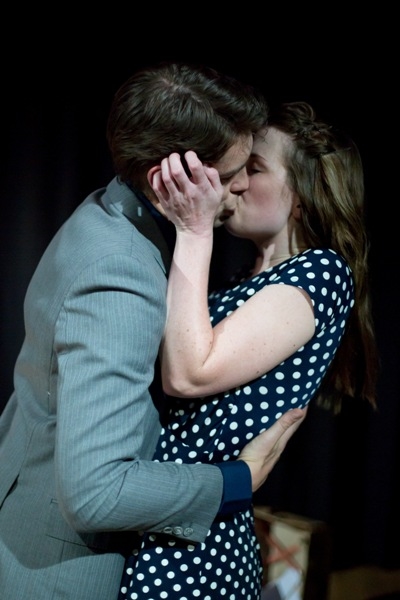Tenant of Wildfell Hall (Arnos Vale Cemetry)
A woman ahead of her time, Anne Brontë’s Tenant of Wildfell Hall, tackles issues of alcoholism, psychological abuse and female empowerment; written by a woman baring true knowledge and experience of a patriarchal society. The story confronts the subjects with such vigour that it seems almost impossible to believe it was written in 1848.

Telling the story of Helen Graham, an artist, who moves in to the ruined Wildfell Hall, Brontë’s novel captures the callousness of life and the choices we make coupled with hope for future happiness through faith (however you choose to place it) and forgiveness. Our protagonist has a secret history and as gossip spreads, the story unfolds, showing her to be a true heroine, woefully subjected to the brutal consequences of her choices in early life.
Performed in the atmospheric surroundings of Arnos Vale Cemetery, Alison Farina’s moving stage adaption sees just two actors on stage throughout the performance, each representing a multitude of carefully defined characters. The speed at which the actors switch between roles to narrate the story is extremely impressive. From youthful humour to lustful conceptions the characters are near-faultlessly played. Both Madeline Ryan and Tom Turner shift between these opposing roles across both genders with accuracy and wit.
Directed by Shane Morgan, the choice of soundtrack (by Bradford –Upon – Avon based Wasuremono) is apt for the production, sparsely using modern alternative music to compliment the minimalist set and timeless costume. There is no frivolity or grandeur to stifle the lesson behind the story and this is an astute director’s choice, leaving the audience to focus on the characters and how their actions affect others within the plot.
Despite being just an hour and a half long, due to the nature of the story and the depiction of time passing slowly and painfully through an abusive relationship, the play does seem – only very slightly – too lengthy towards the end and could perhaps be split in to two halves. However, this may awkwardly divide the plot and I can understand the avoidance of having an interval in such a gripping tale.
It is confusing as to why Anne Brontë’s writing is so hugely underrated in comparison to her siblings’ work, such as Emily’s Wuthering Heights and Charlotte’s Jane Eyre. It is even more confusing still to think that Anne Brontë is not a more prominent idol in the world of feminism. The Tenant of Wildfell Hall is arguably one of the most powerful and considered to be the first sustained feminist novel ever written; and this stage adaption is beautifully performed, directed and received by its diverse audience.
If you are looking for a thought-provoking night at the theatre, this is the play for you.










